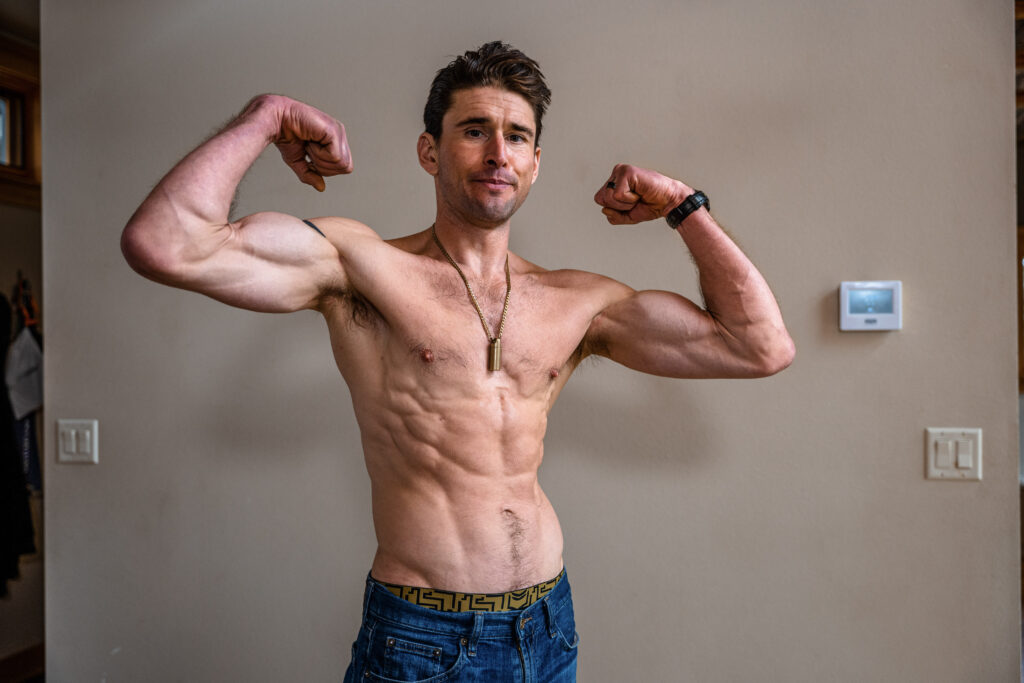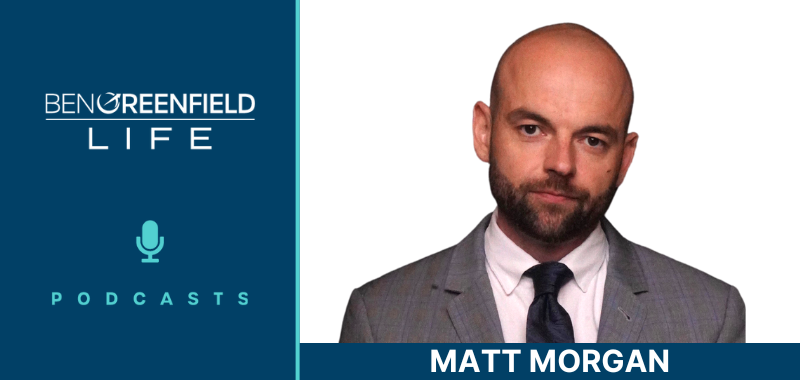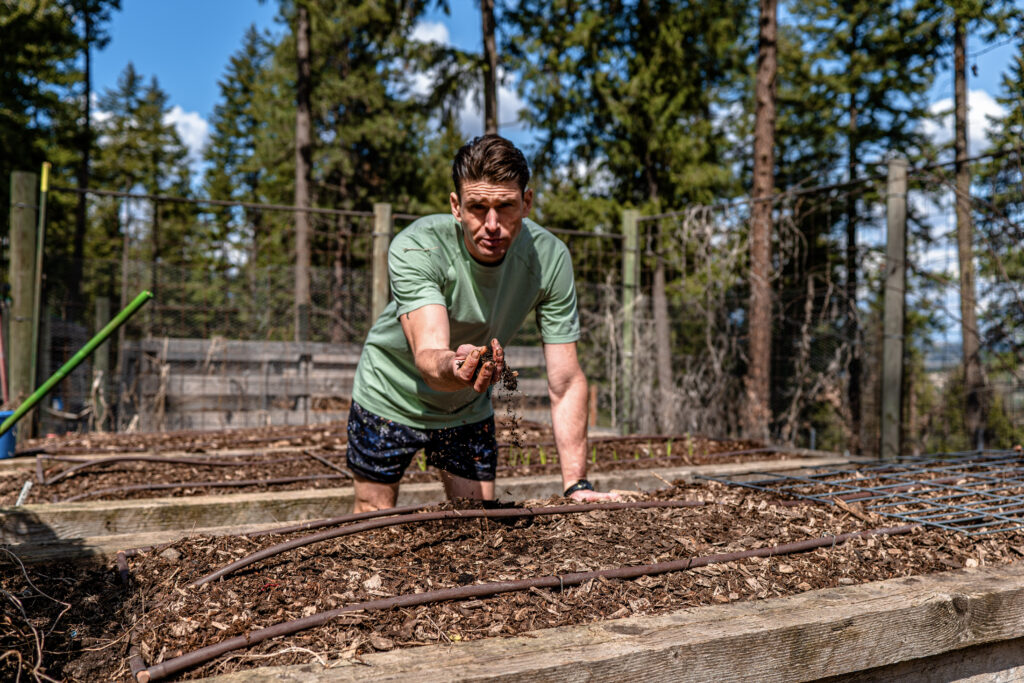September 5, 2016
You may have heard of my friend Tai Lopez, pictured with me above in the kitchen of his Beverly Hills mansion.
He went from having $47 in the bank to owning a Lamborghini, a Ferrari and a even limited edition Rolls Royce “Ghost car” that I recently featured on my Snapchat as Tai and I were driving to dinner.
He's boosted his total testosterone to 1011 ng/dl using completely natural methods with no medications or testosterone injections, creams or lotions (that is off-the-charts high)!
He reads the full text of 5, 6 and sometimes 7 books a week (and we're not talking Curious George or e-books, but full on titles like the ones he talks about in all these podcasts I've done with him)
Two weeks ago, I was hanging out with Tai at his mansion in Beverly Hills, where he has his own personal movie theatre, a tennis court, a basketball court, an outdoor speed training facility, a kickboxing studio, a gym, an organic garden and a whole lot more (yes, yes, I know this is already sounding excessive but I'm not making up stories about this guy…this is really the way he lives)…
…and, sitting beside his pool, I started asking him questions about his routines, his lifestyle, his choices, and specifically his habits – the habits that have made him into a guy who has extreme freedom of resources, freedom of time and freedom of mind.
Below are the six biggest takeaways from that conversation – during which I furiously scribbled notes and formed them into an actual article for you. These are practical habits you can add to your daily routine today, so you can start living what Tai calls “The Good Life” tomorrow.
—————————-
1. Connect With Geniuses And Millionaires Every Day
Easier said than done, right?
Well, in fact, connecting with geniuses, millionaires, and the greatest minds in history isn’t as difficult as you think.
One of my biggest takeaways from spending time with Tai is taking into consideration how much he invests into other people’s knowledge. There is, in fact (aside from possibly my twin eight year old boys who read copious amounts of Diary Of A Wimpy Kid books every night) no one else I know personally who reads as much as Tai.
For as long as I’ve known Tai, he’s been reading at least one book a day. You do the math. That's seven books a week.
If you’re like most people reading this, reading a book a day is probably overwhelming. But don’t let the idea of a book a day deter you – you can try reading a book a week, or even a book a month instead (heck, that's still 12 geniuses and millionaires you're connecting with each year) or you can grab a bunch of Tai's speed reading tips here.
Reading as often as possible and as many books as possible is all it takes to connect with people throughout history, including people who are normally out of reach, like former presidents or highly-successful business owners.
All it will set you back in most cases is a few to several bucks, or free if you use your local library (yes, those still exist) or the Kindle Lending Library. That’s not a bad tradeoff to connect with multiple experts in any given topic, right?
For example, let’s say you want advice on investing. For help with this, you could buy and read a book from Warren Buffett — a man who, according to Forbes, has a net worth of $66.8 billion dollars. Surely you will find a thing or two in the book like that about investing. Warren's right hand man is Charlie Munger, and his book “Poor Charlie's Almanack” is one of the best and most fun money books I've ever read, period.
Look — it’s impossible for you to become an first-hand expert on everything and that's why it’s advantageous for you to soak up as much knowledge from others as possible.
If you’re wanting a few other books to start with, here’s a list of recommended books that both Tai and I have read in the past year and found to be great reads:
–8 Weeks to SEALFIT by Mark Divine — If you want to toughen up, this book is for you. SEALFIT is a training style developed by my friend and retired Navy SEAL Commander Mark Divine. He created this program for professionals who wish to reach their fullest potential. The great thing about this book is it isn’t just about physical strength: 8 Weeks to SEALFIT trains your mind, too.
–Managing Oneself by Peter Drucker — Self-management and discipline is key to getting what you want from life, especially if you’re in a leadership position or you manage your own company. How you handle your inner self influences how effect you are, and it's also how you kill procrastination. This a simple, easy-to-read book you can go through easily in a day.
–Total Recall by Arnold Schwarzenegger — From the time he was a little boy, Arnold worked toward getting the things he wanted. And he did. From marrying a Kennedy, to becoming the highest-paid actor, becoming a millionaire before 30, and reaching the highest position in government possible for someone of his status, Arnold did what he set out to do. He wasn’t perfect, and he made mistakes, but Arnold’s drive and persistence is something you can learn from and apply to your life.
Don't hesitate. Don't balk at the $8.49 cost of a book. Just buy and read and then rinse, wash and repeat. The more books you have the more you will read them, just like the the more giant bags of dark chocolate almonds from Costco you have, the more you will eat them (c'mon, you know who I'm talking to).
Oh, and by the way, in case you want a goldmine of book “summaries” that allow you to tap into 90% of the goodness of any book without actually reading the entire book, check out my friend James Clear's excellent book summaries page here and also Derek Siver's book summaries page here.
But I digress. Here’s the next successful habit I learned from Tai…
————————
2. “Chunk” Your Daily Routine
Back in 2015, I released a podcast about morning routines and rituals that Tai has. During this podcast, we discussed how to “chunk” your schedule.
What is chunking?
Chunking is a way for you to take advantage of your body’s natural energy levels so that you can maximize your daily productivity and energy. See, living from minute to minute absolutely kills your productivity and focus. The reason for this is that you’re far more ineffective when you force your brain to “reboot” itself after switching from one task to another. As this research has shown, when you multitask rather than chunk, you even damage your brain.
If you’re unsure how to begin chunking your daily routine, here’s a template from Tai that I jotted down in my notes from our poolside conversation that day which you can use to get started (yes, his morning routine differs from mine, but it's a good one to review).
-Early Mornings (6-8am) — This is a good time to eliminate anything major that’ll distract you throughout the day. If there are any major emergencies or “fires to put out”, take care of them ASAP.
-Morning (8-12pm) — This is prime productivity time for most people (although the new book “Power Of When” shows there will be some variation). You’ll want to focus on the difficult things during these morning hours. The reason why is because your willpower peaks during this time; your brain is rested and ready to go, so use your morning burst of energy to handle the tough stuff.
-Afternoon (12-2pm) — This is your break time. Use this midday downtime to step away from your work. Going for a walk outside is a way to disconnect from your screen, and open yourself up to the therapy nature offers.
-Late Afternoon (2-6pm) — This is where you can begin to transition from work to reward or less cognitively demanding activities. Since you’ve gotten the difficult things done in the morning, you can reserve your late afternoons for relaxing, fun things. If you could get involved in social, or even competitive, activities with others, then that's even better.
-Evening (8-10pm) — This is your relaxation time. Go ahead, watch a show. It’s okay to tune out. You can’t be working 20 hours a day. It’s not healthy and you won’t be as productive as you could be when well rested.
Before I get into the next of Tai's habits, I have a short disclaimer about the template above.
What was just described is a sample to follow – it’s not set in stone, and Tai’s template may need some tweaking to adjust to your personality and body type. Read the book Power Of When for more on how the way you set up your day is actually best based on your unique chronobiology.
For example, I personally find that I get a “second wind” of productivity in the evenings. I tend to use this time to accomplish any creative or cognitively demanding tasks I need to do. I've also recently discovered that I do better with sex in the morning (when my testosterone peaks) vs. sex in the evening (when I'm tired) and coffee in the early afternoon (when I have a natural cortisol decrease) vs. coffee in the morning (when my cortisol is already high).
But, that’s just me. As you know if you read my article “Five Quotes I Live By, Three Keys To Happiness, Two Questions To Ask Yourself & One Must-Do Thought Experiment.” then you know that Tai and I are not identical, but we both have systems like this and lenses through which we see the world.
So whether you use the template above from Tai, or something on your own, experiment often and see what works best for you, and check out more of my own daily routines here.
OK, on to the next habit…
—————————
3. Avoid Flurries of Activity
An all-too-common character trait of entrepreneurs is to “screw it, just do it.”
While this trait is advantageous for you in a lot of ways — especially when comparing yourself to someone who is of idle nature, being involved in a flurry of activity may just mean you’re involved in nothing at all.
Basically, entrepreneurs, and some non-entrepreneurs too, just want to start things. We have ideas. We want to create solutions for problems, and profit from our efforts.
The downside of this mentality is it’s easy for us to start 101 projects — yet complete none of them. I learned this about myself when I was psychoanalyzed on the podcast “I Am A 98% Angry, No-Nonsense, Perfectionistic, Extremely Unconventional, Rule-Breaking, Fearless Assassin-Sniper.”.
Tai’s solution to this double-edged-like trait is as follows:
- Acknowledge you have a problem of starting too many projects.
- Learn from other entrepreneurs and adapt their methods of focus and productivity (recommended read for this: The Everything Store, by Jeff Bezos).
- Realize it’s impossible to be the best at everything, yet it is possible to be exceptional at 2-3 things.
Something else related to this that I jotted down in my notes which Tai mentioned to do in addition to the above is to “think small, not big”.
This means that instead of having several big ideas, you should try just having 1-2 big ideas and several small ones. When you do this, you will find that by completing small and easy tasks, you’ll get the momentum you desire, and this is momentum that fuels you to complete your 1-2 big ideas. I'll often “knock out” the several small ideas and put out those fires before moving on to my big ideas, so that my head is clear when I tackle my big ideas – which stands in stark contrast to the idea of doing the most important thing first in the day, but which actually seems to work quite well for effectively tackling the big idea.
Another thing Tai recommended during this discussion that I had with him about his habits is that you can “vent” your entrepreneurial energy by having a creative outlet. This could be playing an instrument or some type of artistic hobby. His is usually basketball.
For example, when I was a kid, I used to spend hours water coloring with paint. Not kidding (I also played violin for thirteen years and was president of the chess club and wrote fantasy fiction stories, so there, yes, I was a consummate geek). This water coloring would be my creative outlet: it would allow me to detract myself from everything else, and let my creative self just go.
Today, another creative outlet for me is music. I enjoy playing the guitar and travel with my ukulele nearly everywhere.
The point here is there is something you can do, at any age, that allows you to release your creative energy, and you need to have something like that present in your life.
And as a benefit of doing so, you’ll avoid the flurry of activity that happens when 100% of your focus is simply hardcore on your “business” activities. Have something that allows you to step away.
————————
4. Use a Stretching Machine
This seems random, and I made fun of Tai at first because I called it his “mother-preparing-for-childbirth” machine, but in addition to his jiu-jitsu training, strength training and fasted morning swims, Tai hits this thing every day: a stretch trainer. Not kidding. He calls it his “stretching machine”.
He told me that if you want to become more flexible, he highly suggests investing in a stretching machine.
I’ve always known about these strange stretching machines that usually appear covered in cobwebs in a corner of a gym, but seeing Tai’s progress with his is what convinced me they’re worth the investment. The guy can nearly do the full splits now after just a year of using it.
Stretching machines get mixed reviews in the professional sports, exercise science and mixed martial arts community. Some say they’re worthless, some say they’re the best thing in the world.
But over time, and when used correctly (e.g. holding a specific stretch for 90 seconds to 3 minutes per day), a stretching machine can help you go from a 120 degree to 180 degree (i.e.,) split. Some machines even allow you to do 190 degrees, which is called a reverse split.
I won't get into Tai's infatuations with sex, drive and testosterone in this article (you can read more about that here), but suffice it to say, I'd hazard a guess this machine is likely helping him in the, shall we say, Kama Sutra department.
As for me, I choose to hang from an inversion table in the morning sun several times per week…
————————
5. Leverage The Expertise of Other People
I don’t know of anyone else who invests more than Tai in trainers and coaches.
Seriously: when I'm staying at his house he constantly has some kind of coach or trainer or teacher or tutor or expert walking in or walking out the front door.
During our last conversation, Tai informed me that his is now investing more than $50,000 a month in connecting with the world’s best experts to learn skills like:
-Basketball…
-Brazilian Jiu-Jitsu…
-Piano…
-Weight training…
-Reading…
-Memory…
-Chess…
Thing is, Tai's not a dummy. He could probably learn each of these skills on his own with the help of YouTube and a few books. Chances are, he would get better at all of the above over time using less expensive self-learning methods.
But having a trainer shortcuts the learning curve, and when you consider the money Tai saves by spending less time learning, it’s logical, no-brainer decision for him to invest in other people’s expertise. In my opinion, perhaps even more importantly, you're far more likely to stick to learning a skill when you have the accountability of a tutor or trainer or teacher providing you with the extrinsic motivation and potential embarrassment to keep cracking away at it each day.
Tai actually calls himself a “Mad Scientist” because he experiments as much as possible, and in as many things as possible, but he's almost always doing it under the safe and effective time-hacking guidance of an expert he has hunted down in any specific niche.
As a matter of fact, after six months of really crappy attentiveness to my ukulele practice, I've finally hired – after realizing how much importance Tai places on having tutors – an online ukulele teacher for once-per-week lessons, which is setting me back $60 per week, but has also infused new motivation, accountability and excitement into my ukulele practice.
———————–
6. Socialize With Tough People
This next habit has been absolutely vital throughout the history of humankind.
And even though most environments today are urban, safe, and full of Starbucks, nail salons and posh health clubs, there is still a strong need for you to associate with tough people. Tai, who is actually an ex-Amish farmhand, gets into this hardcore in my podcast episode with him entitled “An Ex-Amish Farmhand Millionaire Renaissance Man Spills His Insider Secrets To Getting Tough.“
So now I’m about to illustrate an over-the-top example from that podcast I recorded with Tai about of how being around tough people raises your standards.
This example is about “Spirit Runners“, a name given to a group of Apache Indians who would run up to 20 mils a day with a mouthful of water.
So why would they train this way?
First, this symbolized a transition into manhood. It was simply the standard for the male members of tribe to be able to run for long distances without stopping.
The mouthful of water also kept their mouth from becoming dry, decreased shallow chest breathing and cortisol release, and strengthened willpower.
And another big reason was so that they would have an advantage during a time of war.
When Geronimo and his 39 Apache Spirit Runners were being chased by thousands of American soldiers, they were able to endure for months without being caught.
How did they do it?
They were able to run 80 miles a day.
Another reason they trained themselves to run for long distances without stopping was for endurance (sometimes called cursorial or persistence) hunting. Endurance hunting is when you run longer than the animal you’re chasing, until the animal completely succumbs to fatigue.
For the Apaches, this level of toughness was the norm: it’s what they grew up with, so it became their standard of living.
How does this relate to you and your life?
Let's look at Tai as an example. Back when Tai was considering college, he instead decided to go work on Joel Salatin’s farm instead (Joel is also someone who’ve I’ve talked about in my podcast about how to eat healthy meat).
Tai did this because he want to endure the pain before the gain. He wanted to experience what it was like to live amongst tough people, so he could be better prepared for his life ahead.
Tai then went on to live with the Amish in Scottsville Kentucky, and these folks are some of the toughest and hardest-working people in the world. Bed time was at 6:45pm, and people on the farm were waking up at 3:00am to start their day of work.
And nearly the last note I jotted down from my conversation with Tai about toughness was this…
…toughness gives you persistence.
It’s one thing to be able run a marathon, and it is quite another thing to be able to run a marathon every day.
You want to surround yourself constantly with people who have the able to persist and pursue, even when things get tough. Being around these type of people will make you work harder and not give up on your goals. Geronimo and his 39 Apache warriors wouldn’t have been able to endure for so long on their own – they were in a small tribe of like-minded people who understood the power of persistence.
So yeah, maybe go hunt down a farmer and bale hay once a week. Or go join an MMA gym and spar on weekday nights. Or go play noon basketball with the guys who shove you around a bit. Or go running with the girls you know will push you. You get the idea. Do it, and do it often.
In life and in business, tough persistence is what keeps you ahead.
Summary
Did you like these habits or want more of Tai?
You can listen to Part 1 of my audio podcast series with Tai here, in which he and I talk about multi-tasking, reprogramming your genetics and checking your e-mail less.
You can listen to Part 2 here, in which Tai and I talk about how to know when you’re actually making enough money, and when you can stop focusing on income, start focusing more on life, love and happiness, and how to strike the ideal balance between being overambitious and underambitious.
Or you can check out Part 3 here, in which Tai and I discuss personal finances Tony Robbins new book “Money”, how Tai feels we should protect and grow our wealth, and exactly what Tai’s personal investment philosophy is.
Or you can feed through the Tai Lopez firehose by jumping into his 67 Steps To Health, Wealth, Happiness & Love program.
Oh yeah, one more thing.
There’s one extra habit I picked up from my conversation with Tai that I want to share.
Invest in yourself.
That's right, investing in yourself is the key to success. Why is an investment in yourself is the best type of investment?
You can invest in materialistic things, but those generally don’t last.
You can also invest in experiences, but those come and go.
But an investment in yourself is something that lasts a lifetime. That's why both Tai and I spend hundreds of dollars a month buying books, learning programs, conference tickets and anything else we can hunt down that will make us a more valuable, educated, resourceful and wise person able to make heavily equipped decisions on everything from money to fitness to love.
And one investment I'd highly recommend you make is Tai's “67 Steps” program, in which you’ll find hours worth of video and audio training straight from Tai (along with some videos from me), live, ongoing content and calls with Tai that are regularly added to his program, and all the methods he's used to where he is at today – healthy, wealthy and wise.
You can get a totally free sample of his 67 Steps program and watch a special video message from Tai here. Enjoy. It's well worth it.
Do you have questions, comments or feedback for Tai or me? Leave your thoughts below and one of us will reply!














67 steps of tai lopez has value in it. its like $1 per video.
Where abouts in 67 Steps does Tai talk about testosterone?
Sad that Ben has stooped to such a low level. You hung out at his mansion did you Ben? Hmm was that the rented one he lies to people about telling them it’s his when it’s not? How would you want to be associated with a sleezy person who lies and tricks people? Unfortunately for you being associated with Tia Lopez lowers your value and makes you look bad. I will not be following you any longer now because of this and I think many others will follow suit.
Hey Julian,
I was hanging out with Tai at his house all last week, don't know if you watch my snapchat at https://bengreenfieldfitness.com/snapchat but you can watch during the days I was there…he's not some stranger I randomly promote but a guy I know and trust. I have been talking about Tai and his teachings a good while now so this is nothing out of the ordinary…I just found out some new tips from him so I thought I would share!
BOOHOO – I thought the same thing when I saw BG associated with “the youtube guy”… but after listening to those podcasts (when Tai Lopez was probably more infamous) i realized he offers some pretty insightful (free) content, and of course BG offers content that makes you think. It takes balls to associate yourself with polarizing characters, so well done for a good article.
Can you link to the podcast where Tai tells how he got his testosterone up?
It's in his program at https://bengreenfieldfitness.com/67steps
So the link in the email that appeared in my inbox saying read this and see how Tai got his testosterone up actually means it’s not really here, you’ll have to go to his site and join up / subscribe to something. Dodgy dodgy dodgy. I’m really disappointed.
I think the main thing is that there's an expectation here possibly that everything on the internet is free! It's pretty reasonable to pay a small monthly fee for good, in the trenches advice on stuff like this.
Correction
Thank you for this practical and thoughtful advice”